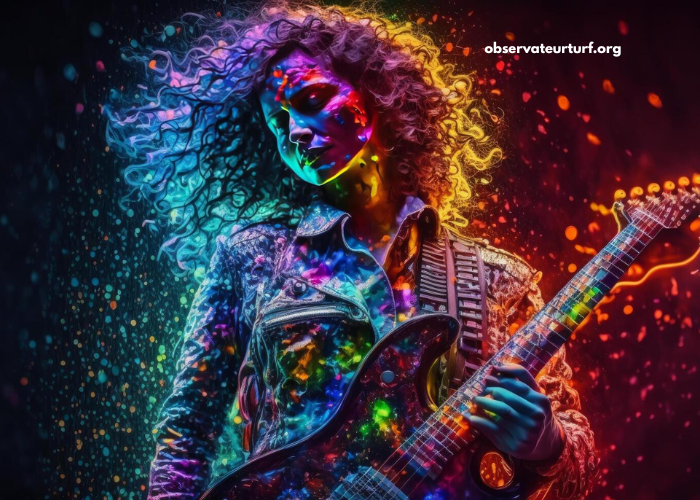The music industry is constantly evolving, influenced by technology, culture, and consumer preferences. As digital streaming platforms, artificial intelligence, and new genres emerge, artists and producers are finding innovative ways to connect with audiences. This article explores the key music trends shaping the industry today and in the future.
The Rise of AI in Music Production
AI-Generated Music
Artificial Intelligence (AI) is transforming how music is composed, produced, and distributed. AI-powered tools like OpenAI’s Jukebox and Google’s Magenta allow musicians to create unique compositions with minimal effort. These tools analyze vast datasets to generate melodies, harmonies, and even lyrics, opening new possibilities for artists.
AI in Music Mastering and Mixing
AI is also revolutionizing music production by automating mastering and mixing processes. Services like LANDR and iZotope use machine learning to deliver high-quality sound engineering, making professional production accessible to independent artists.
Ethical Concerns and AI Regulation
While AI offers innovation, it also raises concerns about originality and copyright infringement. Industry leaders are working on regulations to ensure that AI-generated music does not overshadow human creativity.
The Growth of Virtual Concerts and Live Streaming
The Impact of COVID-19 on Virtual Concerts
The pandemic accelerated the shift towards virtual concerts, with platforms like YouTube, Twitch, and TikTok Live becoming essential for artists. Even as live venues reopen, virtual concerts remain popular due to their global reach and accessibility.
Metaverse and Immersive Concert Experiences
With the rise of the metaverse, platforms like Decentraland and Roblox are hosting virtual concerts where fans can interact with their favorite artists in a digital space. This immersive experience is reshaping fan engagement and monetization.
Hybrid Concert Models
Many artists are now combining in-person events with live streaming to cater to a global audience. This hybrid approach enhances revenue streams and ensures that fans who cannot attend in person still enjoy the experience.
Genre Evolution and Cross-Cultural Influences
The Popularity of K-Pop and Latin Music
K-Pop and Latin music have gained massive global followings, thanks to streaming platforms and social media. Groups like BTS and Blackpink have made K-Pop a dominant force, while artists like Bad Bunny and J Balvin are driving Latin music’s international appeal.
The Fusion of Genres
Music today is less defined by rigid genres, with artists blending styles like hip-hop, EDM, and classical to create fresh sounds. This trend allows for more creative expression and attracts diverse audiences.
The Rise of Afrobeats and Regional Sounds
Afrobeats, driven by artists like Burna Boy and Wizkid, is gaining mainstream recognition worldwide. Similarly, regional sounds such as Indian folk-fusion and Middle Eastern electronic music are attracting global listeners.
The Impact of Streaming Services on Music Consumption
Dominance of Spotify, Apple Music, and YouTube
Streaming services have replaced traditional music sales, giving listeners access to millions of songs on demand. Algorithms curate personalized playlists, shaping listener preferences and discovery.
Independent Artists Thriving on Streaming Platforms
Platforms like Bandcamp and SoundCloud allow independent artists to release music without major label backing. This democratization of music distribution empowers creators to build careers without intermediaries.
Revenue Challenges for Artists
Despite streaming’s popularity, artists often earn minimal royalties per stream. Many musicians are exploring alternative revenue models, such as merchandise sales, exclusive content, and fan subscriptions, to supplement their income.
Social Media’s Influence on Music Trends
TikTok’s Role in Music Virality
TikTok has become a powerful platform for music discovery, turning songs into viral sensations overnight. Tracks that trend on TikTok often climb the Billboard charts, making the app a crucial marketing tool for artists.
Instagram and Twitter as Fan Engagement Tools
Artists use Instagram Stories, Twitter threads, and live Q&A sessions to engage with fans directly. This direct interaction strengthens fan loyalty and boosts music promotion efforts.
The Rise of NFT Music and Blockchain Technology
Non-Fungible Tokens (NFTs) and blockchain technology are revolutionizing music ownership and distribution. Artists can sell exclusive tracks, albums, and digital collectibles as NFTs, giving fans a new way to support their favorite musicians while ensuring fair compensation for creators.
The Future of Music Education and Learning
Online Music Learning Platforms
Platforms like MasterClass, Udemy, and YouTube offer aspiring musicians the ability to learn instruments, production, and songwriting from professionals. This accessibility is encouraging more people to pursue music as a career.
AI-Powered Music Education Tools
AI-driven tools like Yousician and Simply Piano personalize learning experiences, making it easier for beginners to grasp musical concepts through interactive lessons and feedback.
Conclusion
The music industry is undergoing a profound transformation, driven by technological advancements, streaming platforms, and evolving listener preferences. AI, virtual concerts, genre fusion, and blockchain technology are shaping the future of music. As artists and audiences adapt to these changes, the industry will continue to evolve, creating new opportunities for innovation and creativity.

